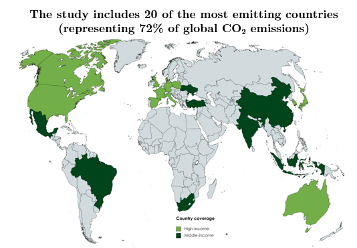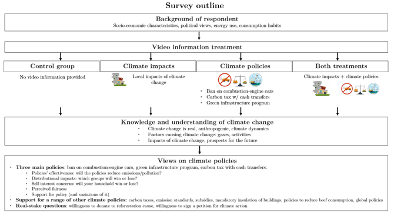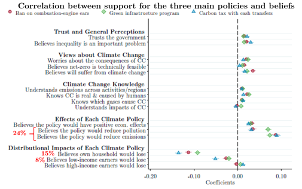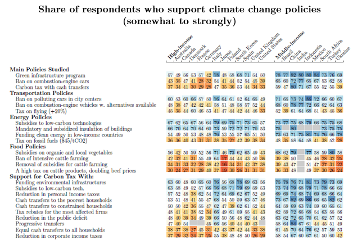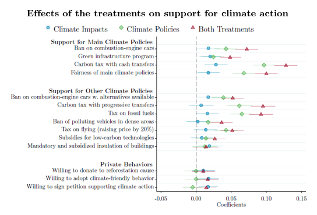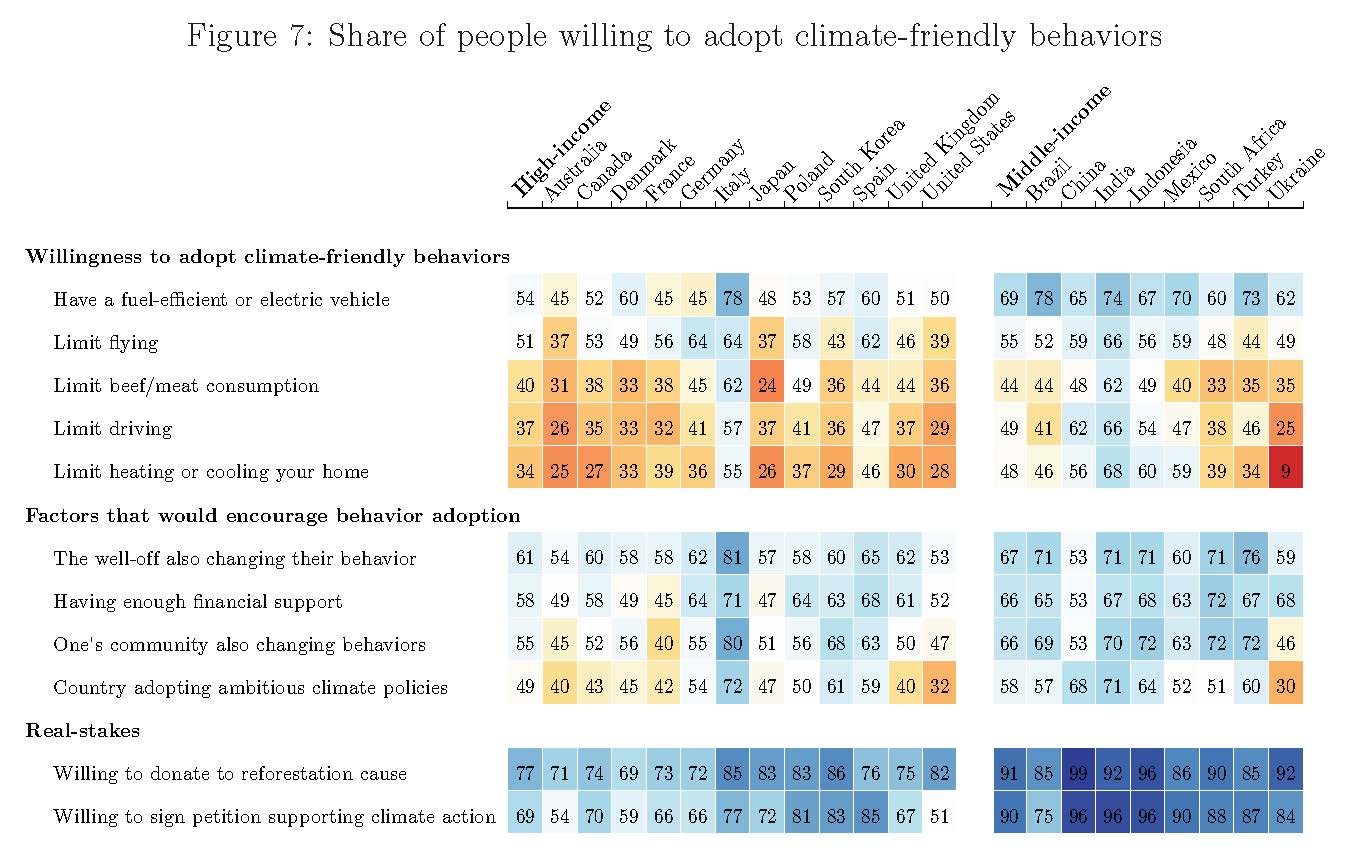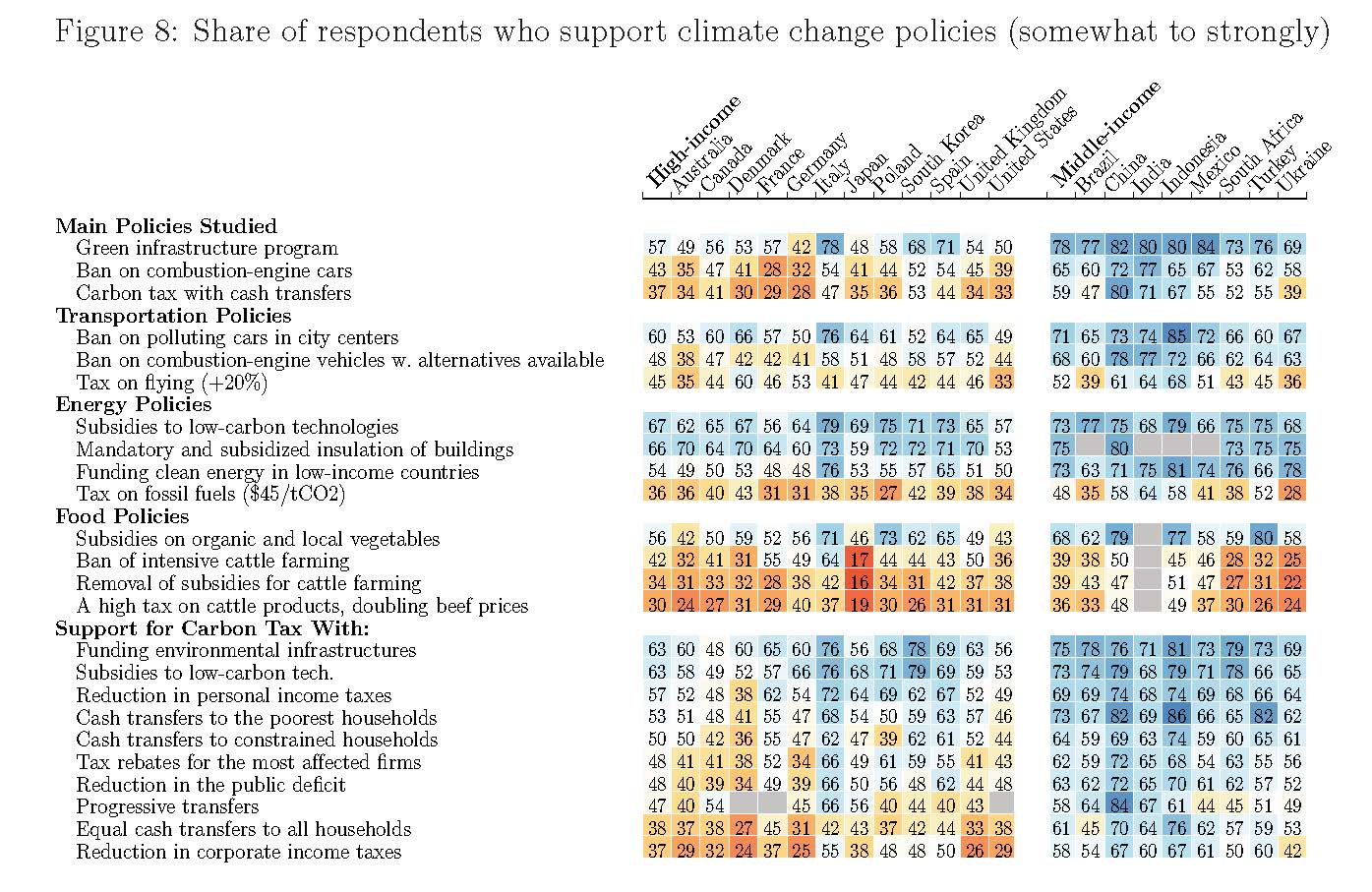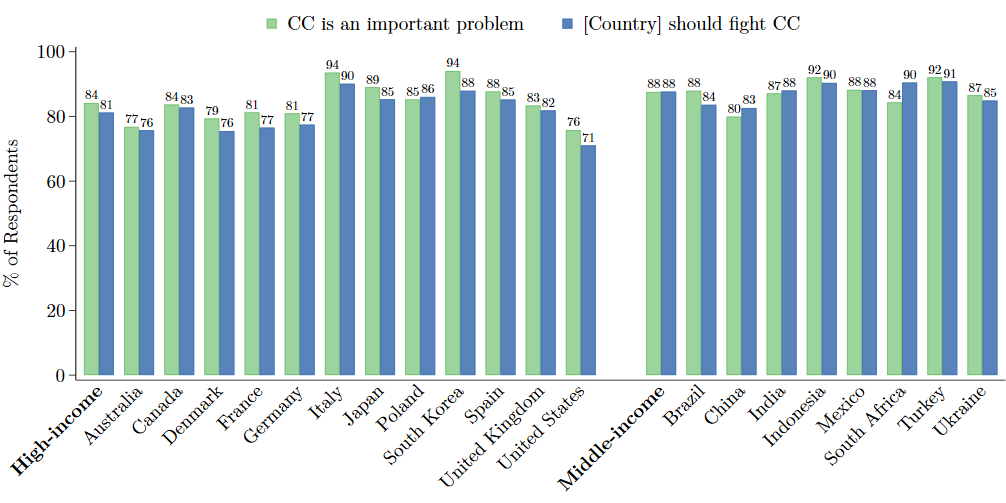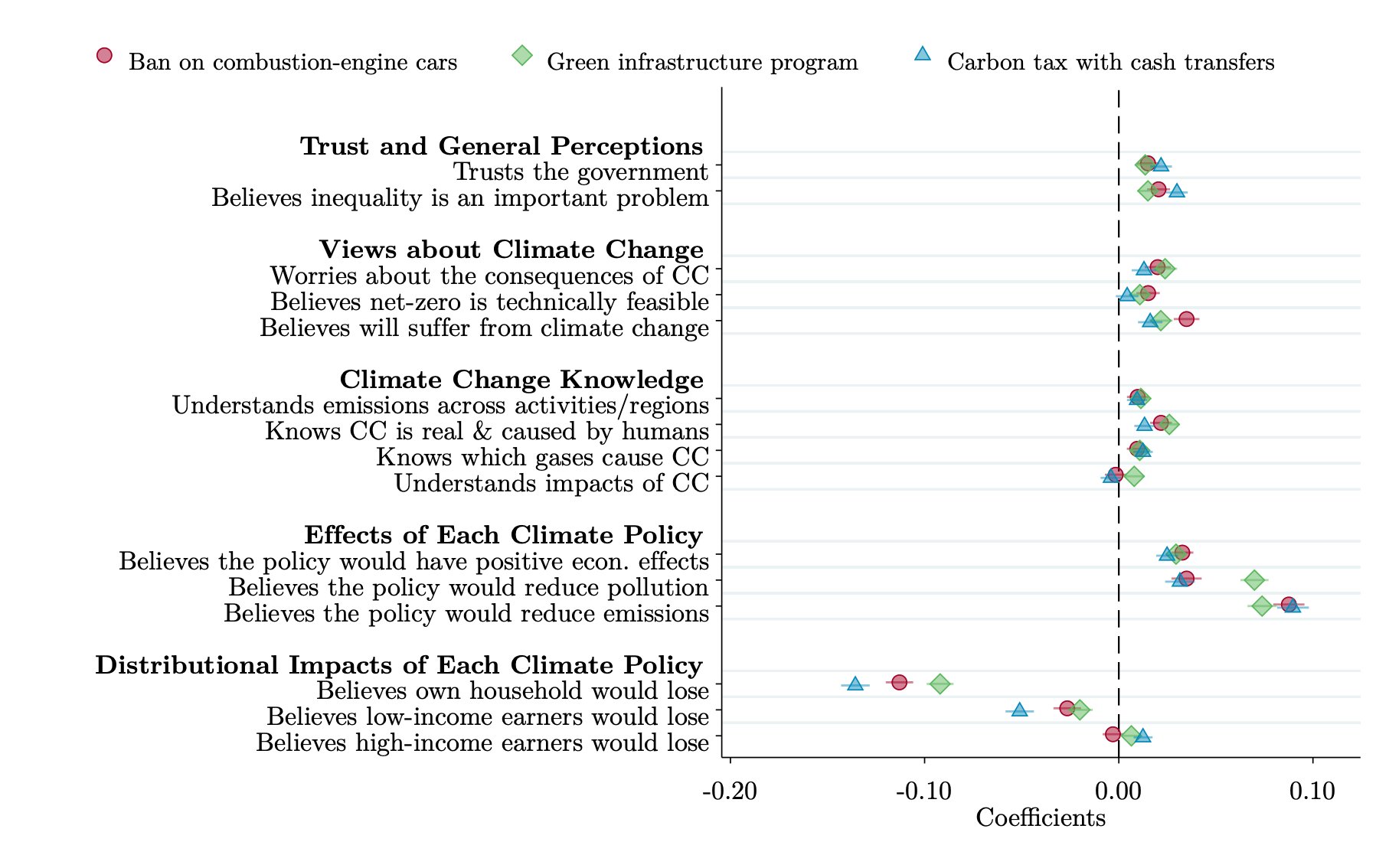Thread by Stefanie Stantcheva
- Tweet
- Jul 20, 2022
- #Ecology #ClimateChange
Thread
Why are we not doing more to fight climate change? New study surveys 40k people in 20 countries to understand 1/ what drives support/opposition to important climate policies 2/ how much people know about climate change & 3/ how info can change perceptions scholar.harvard.edu/files/stantcheva/files/international_attitudes_climate_change.pdf
Citizens are *very concerned* about climate change and supportive of taking action ⬇️. Yet, governments have set strong climate goals but struggle to implement them. This large-scale international survey sheds light on what matters for increased support 2/N
#surveys are key for understanding people's views on public policies. This survey asks respondents about their characteristics & energy use, knowledge & views on climate policies. It also shows them pedagogical videos on impacts of climate change & how policies work 3/N
Three key concerns determine support for a given climate policy (or lack thereof): 1) is it effective in reducing emissions? ("Effectiveness concern") 2) Will it hurt my household's finances? ("Self-interest") 3) Will it hurt the poor & lower-income? ("Inequality concern") 4/N
This means, among others, that self-interest is by far not the only reason why people support policies. They have broader concerns about their effectiveness and their impacts on others, esp. the poor 5/N
It also means that concerns about climate change are not major predictors of people's policy views (many are already very worried!). Similarly, even though people's knowledge about climate change varies, knowledge is barely correlated with their policy views 6/N
Thus, there is more support for policy designs that are perceived to be more effective and progressive. These include 1/ targeted investment programs (e.g., in green infrastructure or low-carbon technologies) that are financed by progressive taxes or public debt 7/N
2/ carbon taxes but only if revenues are used in a strongly progressive way (cash transfers to the poorest or vulnerable households) or earmarked for green investments 8/N
3/ *in some cases* regulations rather than corrective taxes. For instance: bans on polluting vehicles from city centers & dense areas or mandatory & subsidized insulation of buildings. Shows an equity concern again: people dislike it when some can "pay to pollute." 9/N
Information & explanations work! But only if they actually address the main concerns people have. Thus, showing people info on the impacts of climate change does not change their policy views (people are already worried about climate change) 10/N
What does work? Explaining how a given policy will reduce emissions and that it is progressive (won't hurt low-incomes more than high-incomes) increases support for that policy. 11/N
Who is more supportive of climate action? In general, more educated or left-leaning respondents. Higher income households only in some countries. Younger respondents are not systematically more supportive across countries either. 12/N
Opposition to climate policies is correlated with lower availability of public transportation, more reliance on cars & higher gas expenses. These respondents hold more negative beliefs about the impacts of climate policies on others & the climate, not just themselves 13/N
Yet, it's hard to predict beliefs or policy views based on socioeconomic & lifestyle characteristics only. Not easy to infer people’s policy views from their age, country, gender, education, income, political leanings, or how much they rely on polluting sources of energy 14/N
Are people willing to change their OWN behaviors and adopt more climate-friendly ones? That is a *very different* issue from supporting more PUBLIC policies and obviously depends on current policies. We highlight a relatively limited willingness to make far-reaching changes⬇️15/N
People say they are more willing to change their behaviors if others, especially the rich also change their behaviors. Many, especially poorer, respondents say that financial constraints are a major issue and that they need help to be able to adopt climate-friendly behaviors 16/N
If we had to draw some policy lessons from these results, they would be 1/ make low-carbon alternatives available 2/ ensure vulnerable groups are sheltered 3/ consider earmarking revenues from carbon & other environmental taxes 4/ inform how policies work & who they affect 17/N
This work is joint with @ADechezlepretre and Tobias Kruse from the @OECD, @adrien_fabre, @BPlanterose and @asanchezchico. Read more here: scholar.harvard.edu/files/stantcheva/files/international_attitudes_climate_change.pdf
Which climate policies generate most support? This figure shows the share of support for a wide range of different climate change policies across 20 countries ⬇️
Share of people across countries who say that climate change is a serious problem and that their country should take action against it ⬇️
Mentions
See All
Dani Rodrik @rodrikdani
·
Aug 18, 2022
Very interesting thread.
